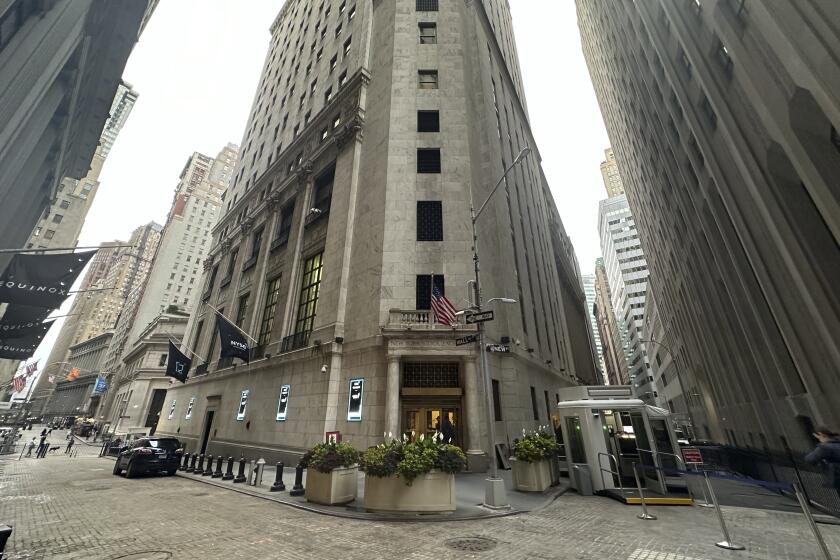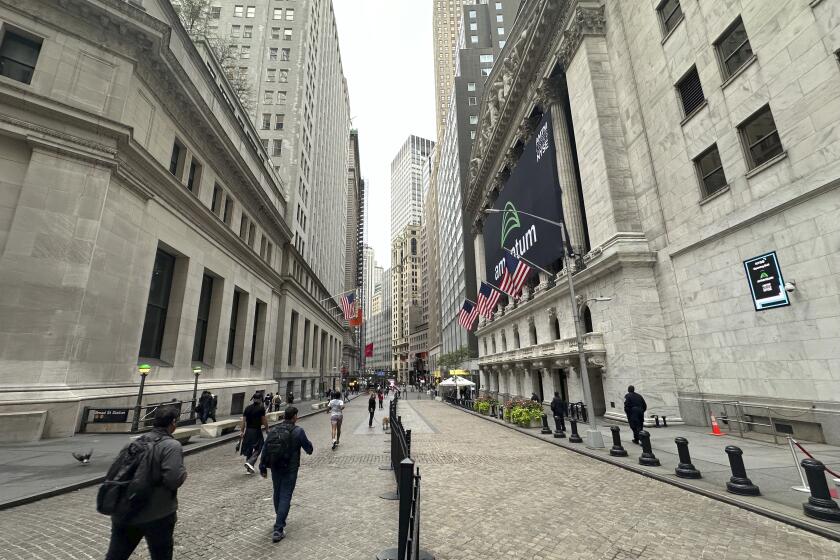2003’s First Trading Days May Be Indicative
This week marks the last two trading sessions in 2002. U.S. markets will be closed Wednesday in observance of New Year’s Day.
“We’re likely to see some fairly weak volumes, as many people are on vacation,” Tobias Levkovich, institutional equity strategist for Salomon Smith Barney, said about this week. “News can get exaggerated one way or the other because of that. Generally speaking, it’s going to be very hard to get much of a read out of the markets.”
But investors no doubt will try to do just that, with many of them believing that market action during the first five trading days of January often serves as an early indicator for the whole year.
“There’s an old saying: ‘So goes the first week of the new year, so goes the month, so goes the year,’ ” said Jeffrey Saut, chief investment strategist at Raymond James Financial.
Early January gains since 1950, excluding 1994, have been matched by whole-year gains with only three war-related exceptions, according to the Stock Trader’s Almanac.
This week, investors also will get a reading on consumer confidence and the U.S. manufacturing sector.
Confidence figures will be released Tuesday. Experts expect the confidence measure to rise to 85.5 in December from 84.1 in November -- an important rise given that consumer spending underpins about two-thirds of the nation’s economy.
On Thursday, the Institute for Supply Management will issue its report on the U.S. manufacturing sector. The report is expected to show growth in December, after contraction for the third straight month in November.
“As the first economic data of the new year, next week’s numbers should get us off to a good start,” said James F. Smith, director of the Kenan Institute’s Center for Business Forecasting at the University of North Carolina. “The economy will be far healthier in 2003 than it was in 2002.”
Economists and monetary policy officials expect growth to pick up in 2003 after slowing to a crawl at the end of this year. In the first quarter, the economy is forecast to expand at a 2.5% annual rate, up from 1.5% in the previous three months, based on the median estimate of 71 economists surveyed by Bloomberg News this month.
A drop in new orders kept the ISM manufacturing index from rising above 50 last month. Since then, manufacturers have expressed more optimism.
In the group’s semiannual outlook survey reported earlier this month, 70% of goods makers and service providers said their sales will be higher in 2003 than this year. Manufacturers said they expect to increase their capital expenditures an average of 4.6% next year.
Meanwhile, a report today from the National Assn. of Realtors is expected to show that sales of existing homes fell in November to an annual rate of 5.7 million from October’s pace of 5.77 million. Existing-home sales are primed to beat the record 5.3 million sold last year.
But low demand for commercial space is causing construction activity to slow. U.S. construction spending increased 0.1% in November, a Commerce Department report probably will show Friday.
*
Also ...
* Today, unemployment benefits run out for about 780,000 American workers under a temporary extension program.
* Tuesday, Chicago Futures markets close at 10 a.m. PST; the bond market closes at 11 a.m. PST; and stock markets close at the regular time.
* Wednesday, U.S. and most global markets closed.
More to Read
Inside the business of entertainment
The Wide Shot brings you news, analysis and insights on everything from streaming wars to production — and what it all means for the future.
You may occasionally receive promotional content from the Los Angeles Times.










